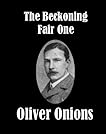 The Maltese Falcon by Dashiell Hammett
The Maltese Falcon by Dashiell HammettMy rating: 4 of 5 stars
Sam Spade is a street-smart protagonist with a nose for solving crimes and an eye for the ladies, but nothing touches his heart of stone. Not even the quest for a black statue of a falcon that is a priceless treasure, and the beautiful damsel in distress it brings into his life.
What starts as a simple surveillance job becomes a mystery that leads to some dead bodies, that the police are eager to pin on Spade. Spade isn't the man to be played, and he shows his ruthless nature, and keen intelligence hiding under a deceptive facade.
I listened to this on audio, narrated by William Dufris. He does an excellent job and really seems to enjoy himself in the process. Unlike some narrators, he manages a very good female voice that doesn't remind me of a man in drag. He also makes each character sound distinctive, and the nature of those characters oozes out to the listener.
I personally found Spade to be a jerk. But he's not all bad. He is adept that saying what a woman wants to hear, and with casual endearments delivered in a silver tongue, but meaning none of it, but he can also be quite mean to the women in his life. I wouldn't exactly call him a thug, but he has no problem using his physicality as an asset when it's necessary. The fact that he's a good detective is very apparent. And strangely enough, deep down there is a strange sense of honor that won't allow him to look the other way, even when he longs to. He also seems to be motivated by a need for no one to think they can take advantage of him. He's even willing to allow people to think the worst of him so long as he can keep his tough guy reputation. You get the impression that San Francisco is his city, and he knows how to maneuver his way through its deep waters. He is a true detective in the sense that nothing gets past him, and while he sometimes struggles to control his emotions, he never allows them to compromise his intellect.
Bridget O'Shaugnessey is one of those heroines who seems helpless and sweet, but it's also apparent she is more than capable of taking care of herself, like butter wouldn't melt in her mouth. The fact that she's deeply involved in this falcon affair is a big sign that she's no Pollyanna. While part of you really wants to like her and fall into her honeytrap, the other part knows that she's not exactly what she seems. I didn't blame Spade for being wary of her and not believing any word she says.
Gutman and Cairo are conveyed in such a way that it's impossible to think of them as caricatures. Their descriptions are so distinctive, almost misleading. However, as I kept reading, I realized that their menace lurks under the surface. Wilbur is truly a scary character, a young psychopath capable of extreme violence and kept on a very short leash. While Wilbur is like a trigger, I'd rather know who my enemy is instead of being faced with an amiable man who is all smiles while he's plotting my demise, like Gutman. Or squishy dandy who seems like he'd jump if you shooed a fly.
I was a bit surprised at the raw content in this novel. Plenty of swearing, although not the big swear words that slip so casually off the tongue nowadays in media. While the sexual elements are alluded to, there is no question that something is going on between the sheets, and that Spade has a certain reputation.
Hammett's writing is terse and tends to be heavy on dialogue, using it as a tool to reveal crucial information about its character. His imagery is clear and bold. While some of his adjectives are a bit clunky, I really enjoyed the auditory stimulus of his descriptors. He conveys Spade as a very physical man, but that is merely a smokescreen for his keen intelligence, and one of his best assets, the ability to cause his enemies to underestimate him.
I think that there is a lot to learn about writing detective fiction from this book. Hammett makes it look easy, but it's not. Less is more is a lot harder than it seems, and my favorite authors are those who get it right. I recommend listening to this. It's very easy on the ears.
View all my reviews








